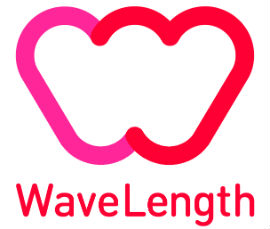Media technology – the cure for modern loneliness?
Posted on 23 March 2016

Researchers analysed whether technology provides positive benefits for users by interviewing individual beneficiaries of radios, TVs and tablet computers – distributed by WaveLength to disabled, homeless and vulnerable people with the aim of reducing loneliness and social isolation.
Established in 1939 as the Wireless for the Bedridden Society, WaveLength gives technological devices to organisations across the UK, including refuges for domestic violence victims, homelessness hostels, and independent medical units, to provide people with a connection to the outside world.
However, public perception towards technology has shifted in recent years, with views that social media makes people less engaged with those around them and therefore more socially isolated and unhappy.
Concerned whether media technology can provide benefits to help combat loneliness, WaveLength commissioned academics from the University’s Department of Social Policy and Social Work to explore the impacts it has on beneficiaries.
Led by Dr Annie Irvine and Professor Martin Webber, research found that media technology helps to reduce loneliness in three ways:
- It provides comfort and companionship, alleviating the subjective experience of loneliness and associated negative emotions
- It facilitates social connections by reducing social isolation, bringing people into ‘real world’ contact with others
- It grants access to a broad range of information and inspiration, from advice on emotional wellbeing and mental health to physical health
Participants also reported that technology produced therapeutic effects, lifted low moods and increased their motivation.
Professor Martin Webber, Director at York’s International Centre for Mental Health Social Research, said: "This study found that recipients of media technology subjectively reported that it helped to alleviate loneliness and social isolation, in addition to a wide range of other positive impacts on their lives.”
“This small study suggests that the provision of radios and televisions to people marginalised by society may help to tackle loneliness and social isolation, which are significant social problems in the UK. We are pleased to continue our work with WaveLength and support them to evaluate the impact of their work through a co-produced project funded by the University of York ESRC Impact Acceleration Account."
Tim Leech, CEO of WaveLength, said: “Media technology does not just provide entertainment: it can improve wellbeing for lonely people and give them a way back into the world. WaveLength is hoping to conduct more research to expand this study, reaching more participants and exploring further benefits offered by the media.”
Further information:
- A launch event providing full results of the study, presented by WaveLength’s Tim Leech and Professor Martin Webber, will take place from 2.30 – 5.30pm, Wednesday 23rd March at NCVO in London N1. If you would like to attend the event, or if you have any questions, please contact Sarah Lamb on sarah@wavelength.org.uk
- For more information about the University of York’s International Centre for Mental Health Social Research, visit: http://www.york.ac.uk/spsw/research/icmhsr/
- For further information about WaveLength, visit: http://wavelength.org.uk/
Explore more news

Poor diets fuelling health crisis in the North, report reveals
Wednesday 23 July 2025

Nightjars at real risk from decreasing genetic diversity, researchers warn
Tuesday 22 July 2025

A ‘millet mystery’ in ancient Japan reveals a complex picture of agricultural adoption, research shows
Monday 21 July 2025

Wednesday's child is not "full of woe," new study finds, debunking popular nursery rhyme
Wednesday 16 July 2025

Optical telescope on York rooftop to advance communication between space and earth
Wednesday 16 July 2025
